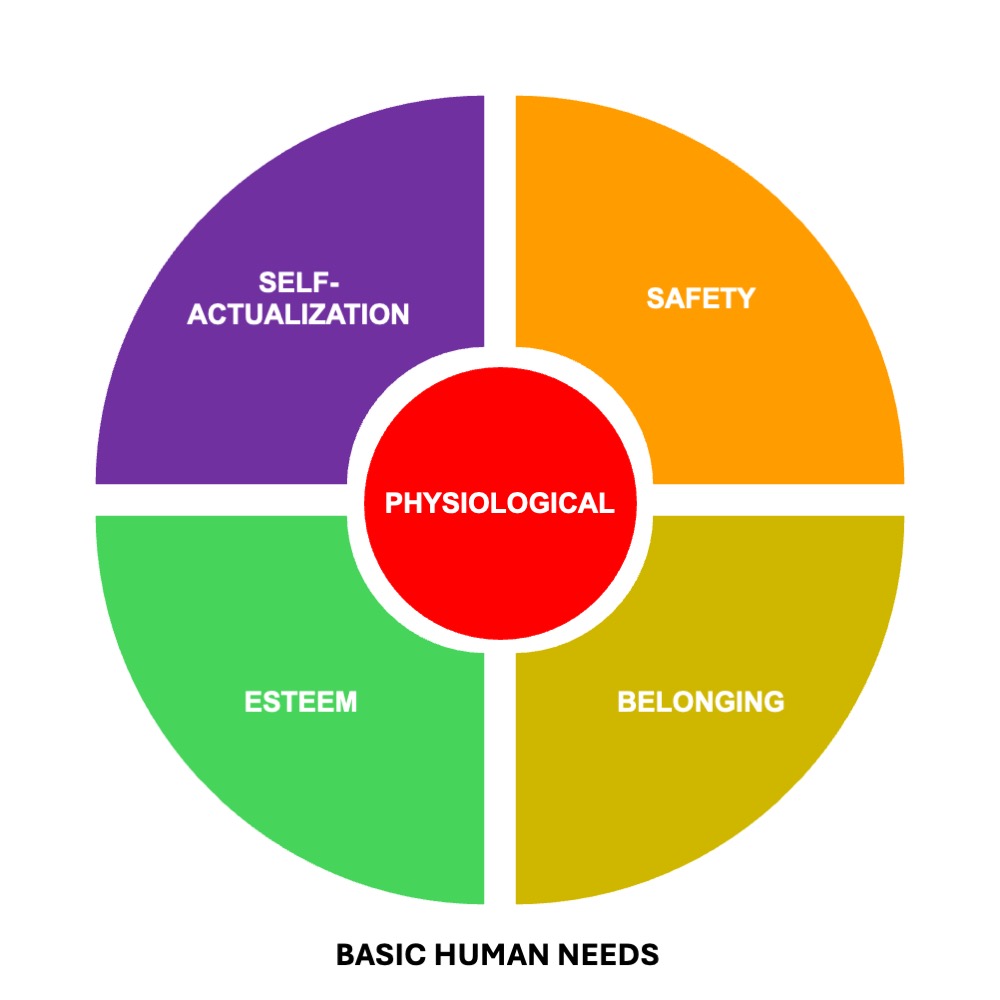RECIPE TO RETAIL: Part 36…

What compels consumers to buy, or not buy, a product? To unlock the mysteries, I looked into motivation, defined as “the need or reason for doing something”.1 Synonyms include incentive, impetus, encouragement, stimulus, impulse. That conjures up images from social media and advertising. But motivation goes much deeper.
Motivation is a major determining factor in how we behave. It is influenced by our genetic makeup, culture and environment, as well as our state of mind at a given moment depending on the situation.
From a psychology perspective, motivation is defined as “the process that arouses, sustains and regulates human and animal behaviour”.2
Let’s take a peek at A Theory of Human Motivation, published by psychologist Abraham Maslow in 1943 and still relevant today. It provides clues to help us get inside consumers’ heads to understand why they make certain choices.
In simple terms, Maslow’s theory is that humans have five basic needs, unconscious goals that motivate behaviour: physiological, safety, belonging, esteem and self-actualization. In later years, Maslow added three need states: cognitive, aesthetic and transcendence.
The theory is based on a hierarchy, often illustrated as a pyramid showing that each need must be satisfied in sequence before the next one comes into play. However, the hierarchical nature of the theory isn’t necessarily reality, as contemporary psychologists have criticized. Every individual has a unique approach to prioritizing, pursuing and fulfilling their basic needs.
Physiological needs
These are the physical necessities, the basic elements of life that enable us to survive: air, food, water, shelter, sleep.
If any of these are lacking, humans cannot survive.
For those who are struggling to exist, their primary motivation must be to fulfill those needs by doing whatever is necessary. Luxuries are not an option.
Socially responsible brands can play a role in alleviating struggles for survival by providing access to nutritious food, water and shelter.
Safety
In these uncertain times, threats to our security are numerous: high inflation, rising interest rates, the housing crisis, unemployment, political instability and natural disasters, among others.
In an unsafe environment it’s natural to seek out remedies, consciously or unconsciously, that instill a feeling of security.
As much as a roof overhead, a line of credit and a child’s “blankie” can create a safe environment, so too can comfort food and sustenance that meets the nutritional requirements to support physical and mental health. This includes special dietary needs that are medically necessary due to allergies or disease.
How might that translate for your brand?
Belonging
We humans are social creatures for whom relationships and connections are paramount. There is an emotional need for bonding with family, friends, romantic partners and feeling like part of a group or community. It all boils down to feeling accepted and loved.
In the absence of a feeling of belonging, we search for other ways to fill the void. Hence, the prevalence of social media.
Marketers should be wary that social media can be an enabler or a bane, with negative aspects such as cancel culture and public shaming causing irreparable harm.
Sharing common likes, philosophies, thoughts and feelings can create bonds and beget belonging. In the same way, food is sharable and advertising is rife with sharing occasions – be it chocolate, pizza or fries – that lead to a rewarding smile or hug.
Does your brand provide opportunities for sharing and how can the experience enhance your customers’ need for belonging?
Esteem
With an inward focus on satisfying one’s self-image or ego, humans strive to gain respect, status and recognition.
By feeding the ego, people develop a positive image of themselves and feelings of self-worth and pride.
There are many routes to building self-esteem, among them:
- practicing self-care, good nutrition, exercise and sufficient sleep;
- setting and achieving goals;
- earning rewards for accomplishments;
- volunteering to help the less fortunate; and
- attaining respect and status in the community.
To be enablers, brands can provide the means to help consumers look and feel their best, raise their self-image, fulfill their aspirations and feel recognized, appreciated and respected.
Self-actualization
The ultimate basic human need is achieved by reaching one’s full potential, self-fulfilment, finding meaning and purpose, and a state of wellbeing.
What role can brands play to help their customers achieve self-actualization?
Applying the theory of human motivation brings a different perspective to marketing strategy. A better understanding of motivation provides an opportunity to influence buying behaviour and customer loyalty.
1 Cambridge Dictionary, 2024 Cambridge University Press & Assessment
2 Collins English Dictionary – Complete and Unabridged, 12th Edition 2014 © HarperCollins
—————–
Birgit Blain’s packaged foods experience includes 17 years with Loblaw Brands and President’s Choice®. www.BBandAssoc.com
© Birgit Blain 2024
This article appeared in Food in Canada magazine.

